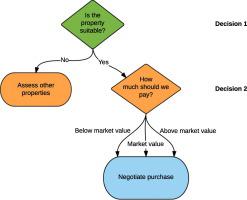当前位置:
X-MOL 学术
›
Biol. Conserv.
›
论文详情
Our official English website, www.x-mol.net, welcomes your
feedback! (Note: you will need to create a separate account there.)
Protecting nature on private land using revolving funds: Assessing property suitability
Biological Conservation ( IF 4.9 ) Pub Date : 2018-02-21 , DOI: 10.1016/j.biocon.2018.01.026 Mathew J. Hardy , Sarah A. Bekessy , James A. Fitzsimons , Luis Mata , Chris Cook , Alex Nankivell , Kate Smillie , Ascelin Gordon
Biological Conservation ( IF 4.9 ) Pub Date : 2018-02-21 , DOI: 10.1016/j.biocon.2018.01.026 Mathew J. Hardy , Sarah A. Bekessy , James A. Fitzsimons , Luis Mata , Chris Cook , Alex Nankivell , Kate Smillie , Ascelin Gordon

|
Protecting biodiversity on private land is an important and growing part of global conservation efforts. Revolving funds are used by conservation organisations to buy, resell and permanently protect private land with important ecological values. By reinvesting proceeds from sales in additional properties, revolving funds offer a potentially cost-effective way to protect biodiversity. Their success requires managers to choose properties that can be resold and recover costs, with resale outcomes having consequences for subsequent acquisitions. However, revolving fund property selection is a multi-dimensional decision, influenced by various ecological, social and financial considerations. In conjunction with revolving fund managers, we developed a Bayesian Belief Network (BBN) to understand which factors they consider to be the most influential on a propertyʼs suitability for acquisition, and how much to pay for it. Sensitivity analysis revealed that managers perceive property suitability to be heavily influenced by the threat to the propertyʼs ecological values, the acquisition and ongoing management costs, and finding alternative options for protection. Amenity values were seen to heavily influence property resale. Threat and alternative options influence how much to pay, but most influential was the balance of the fund when the purchasing decision is made. Our results suggest managers are taking a low risk approach to property selection. Opportunities may exist to apply revolving funds to higher risk properties otherwise difficult to conserve, provided the need for resale is still met. Ensuring revolving funds target properties with suitable attributes could increase the contribution of this tool to conserving biodiversity on private land.
中文翻译:

使用循环资金保护私人土地上的自然:评估财产适宜性
保护私人土地上的生物多样性是全球保护工作的一个重要且不断增长的部分。保护组织使用循环资金购买、转售和永久保护具有重要生态价值的私人土地。通过将销售收益再投资于其他财产,循环基金为保护生物多样性提供了一种潜在的具有成本效益的方式。他们的成功要求管理者选择可以转售并收回成本的房产,转售结果会对后续收购产生影响。然而,循环基金财产的选择是一个多维度的决策,受到各种生态、社会和金融因素的影响。我们与循环基金经理合作,开发了贝叶斯信念网络 (BBN),以了解他们认为哪些因素对房产的收购适宜性影响最大,以及为此支付的费用。敏感性分析显示,管理者认为财产的适宜性很大程度上受到财产生态价值威胁、收购和持续管理成本以及寻找替代保护方案的影响。便利设施价值被认为严重影响房产转售。威胁和替代选择会影响支付金额,但影响最大的是做出购买决定时的资金余额。我们的结果表明,管理者正在采取低风险的方法来选择房产。如果转售需求仍然得到满足,则可能有机会将循环资金用于难以保存的高风险财产。确保循环基金针对具有适当属性的财产可以增加该工具对保护私人土地生物多样性的贡献。
更新日期:2018-02-21
中文翻译:

使用循环资金保护私人土地上的自然:评估财产适宜性
保护私人土地上的生物多样性是全球保护工作的一个重要且不断增长的部分。保护组织使用循环资金购买、转售和永久保护具有重要生态价值的私人土地。通过将销售收益再投资于其他财产,循环基金为保护生物多样性提供了一种潜在的具有成本效益的方式。他们的成功要求管理者选择可以转售并收回成本的房产,转售结果会对后续收购产生影响。然而,循环基金财产的选择是一个多维度的决策,受到各种生态、社会和金融因素的影响。我们与循环基金经理合作,开发了贝叶斯信念网络 (BBN),以了解他们认为哪些因素对房产的收购适宜性影响最大,以及为此支付的费用。敏感性分析显示,管理者认为财产的适宜性很大程度上受到财产生态价值威胁、收购和持续管理成本以及寻找替代保护方案的影响。便利设施价值被认为严重影响房产转售。威胁和替代选择会影响支付金额,但影响最大的是做出购买决定时的资金余额。我们的结果表明,管理者正在采取低风险的方法来选择房产。如果转售需求仍然得到满足,则可能有机会将循环资金用于难以保存的高风险财产。确保循环基金针对具有适当属性的财产可以增加该工具对保护私人土地生物多样性的贡献。









































 京公网安备 11010802027423号
京公网安备 11010802027423号